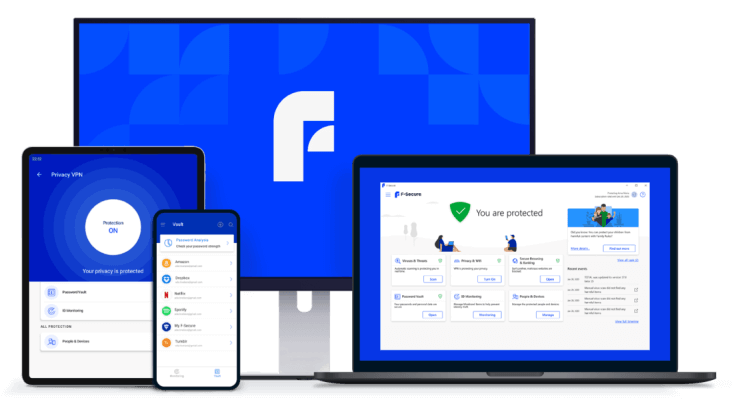- Products
- F‑Secure TotalComplete online protection
- F‑Secure Internet SecurityAward-winning antivirus
- F‑Secure VPNOne click to online privacy
- F‑Secure ID ProtectionProtect your passwords and online identity
- F-Secure Scam ProtectionStay safe against online scams
- Compare products
- Product selectorFind which product is best for you
- Renew
- Articles
- Support
- Free tools
- Scam protection
- My F‑Secure
- Home
- Free tools
- F‑Secure Router Checker
F‑Secure Router Checker
Check for free if your router is safe
See if your router type has known vulnerabilities that may compromise your security.
You can find your router's model from the bottom of your router.
Check your router
Router checker searches the public NVD database if the router type has known vulnerabilities.
Get a summary of known security issues
We use AI to write the technical descriptions in layman's terms. Our tool shows up to 10 most recent vulnerabilities.
Check safety recommendations
Read the tips on how to improve your router security.


The next step from router security
Your router is just one device to protect. Next, secure everything you do on computers, phones and tablets with F‑Secure.
Easy-to-use protection at home and on the go
Internet security, VPN, password manager and more
Safe browsing, shopping and banking online
Protects against text message scams & phishing links
Frequently asked questions
An internet router is a device that connects other devices to the internet. Instead of every device connecting directly to the internet, they connect to the router. The router then routes the flow of data to and from the devices connected to it.
Most devices are incapable of connecting online without a router in between. Computers and mobile devices as well as many smart devices such as home appliances, entertainment systems and gaming consoles are typically connected to the internet via a router. Nowadays this usually happens wirelessly with a Wi‑Fi network created by a router.
By managing all internet traffic, the router plays a big role in keeping internet-connected devices in a wireless network safe from outside threats, such as hacking attempts and denial of service (DoS) attacks. Luckily, many routers offer additional safety features that make connecting to the internet safer. You should still be aware of and prepared for potential threats to your router, and as a consequence, all devices in the network.
F‑Secure Router Checker shows the known vulnerabilities to the router type, not your individual router. The improvements you make do not affect the listing, but they do greatly improve your router security.
We use the leading U.S.-managed database of cybersecurity vulnerabilities, National Vulnerability Database (NVD). The vulnerability descriptions are often very technical. To help everyone understand the vulnerabilities, we have tasked AI to write the descriptions with more accessible terms. We are certain that the AI explanations help more people understand the security and possible threats related to their router.
The previous version of Router Checker focused only on checking the router's DNS settings. As DNS hijacking has become a lesser threat, the technology and purpose behind the previous version of this tool became outdated. That's why we have updated it. The new version looks into all known vulnerabilities of a router type, which gives a better picture of router security.
Router security is dependent on the manufacturer. While the F‑Secure app doesn't protect your router, you can protect your computers, phones and tablets with it. This gives you good protection against most online threats.
However, F‑Secure works with multiple major router manufacturers and operators to protect users against router-based threats. Unfortunately, F‑Secure’s router-based security can’t be installed on routers that don’t already have it pre-installed. But luckily, by following our tips on protecting your router and protecting your online-connected devices with complete protection, you can effectively secure everything you do online.
We use the leading U.S.-managed database of cybersecurity vulnerabilities, National Vulnerability Database (NVD). The NVD provides detailed information on vulnerabilities, including severity scores and software version identifiers. Our tool shows up to 10 most recent vulnerabilities. However, it’s important to note that the information in the NVD may not always be complete or perfectly accurate.

